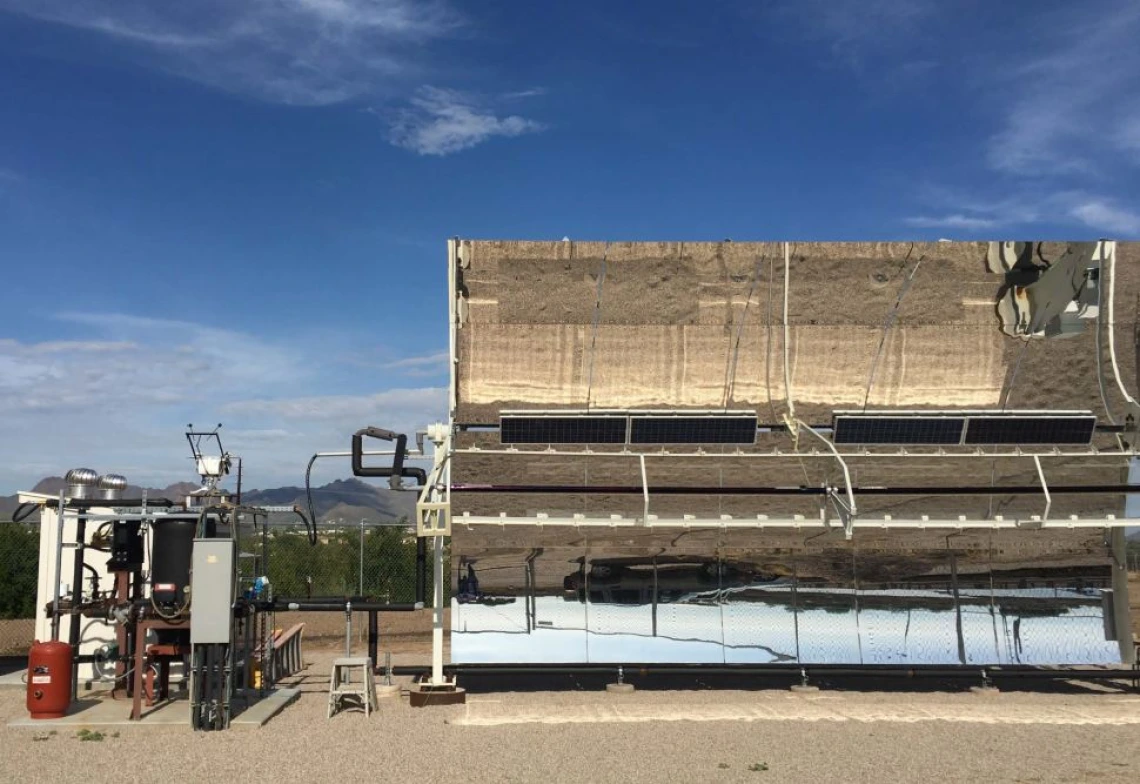Energy-Water Collaborative wins DOE RAPID Award
HOT water-energy technology for inland desalination by UArizona researchers wins DOE RAPID award

University of Arizona researchers, Drs. Kerri Hickenbottom and Andrea Achilli, Water and Energy Sustainable Technology (WEST) Center and Dr. Robert Norwood, College of Optical Sciences were among five projects to recently receive a DOE RAPID award to test their combined technology innovation as a cost-effective, energy-efficient way to desalinate water supplies. The University of Arizona, together with partners at Aquastill, Chemstations, DWP Energy Solutions, and W.L. Gore, will develop a solar-driven, intensified, membrane-distillation process to efficiently manage the concentrate waste stream from reverse-osmosis plants.
Hybrid Optical Technology (HOT) for Concentrate Management Water and energy are intertwined with demand driven by population growth and economic expansion. Water-stressed regions are exploring more nontraditional water sources and energy intensive technologies such as reverse osmosis (RO) to secure and augment their freshwater supply. As RO effectively rejects most of the dissolved species and recovers approximately 50 to 80% of water depending on water source, it also generates a relatively large concentrate waste stream. Management of concentrate streams in inland applications is the key technology hurdle to overcome as it often requires the integration of one or more unit operations. Common management strategies (surface water discharge, deep well injection, evaporation ponds, land applications, thermal evaporation, etc.) are timely, costly, and can be energy intensive. Thus, there is an unmet need and multiple incentives for process intensification in inland desalination applications to augment limited freshwater supplies and reduce energy consumption.
The Hybrid Optical Technology (HOT), an intensified solar-energy capture desalination system, integrates membrane distillation (MD) (Hickenbottom and Achilli) with a hybrid concentrated solar power (CSP)/photovoltaic (PV) collector (Norwood) to realize self-sustained desalination of concentrate streams in inland and off-grid applications. The overlap of water scarcity in high-solar potential regions such as Arizona, California, Colorado, New Mexico, and Texas presents an ideal opportunity for a technology to successfully augment water supplies – an increasingly precious commodity – by converting highly saline concentrate streams produced during inland desalination to beneficial use. Furthermore, direct utilization of solar heat from CSP and electricity from PV for water purification enables higher energy productivity, and thus lower levelized cost of water and energy. The primary goal of this project is to realize increased solar energy and water utilization in desalination processes through a hybrid MD-CSP/PV collector.
